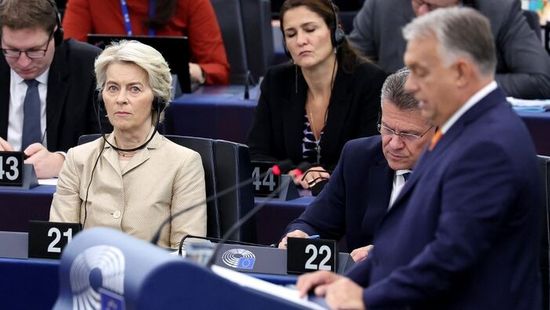Dokumentumok bizonyítják: Brüsszelben arra készülnek, hogy a Fidesz nyeri meg a választást

Az elemző szerint ráadásul az is egyértelmű, miért nem lenne rájuk szükség, ha Magyar Péteréket tartanák esélyesnek.

It’s been a week and the newly minted Israeli-Palestinian peace talks have not broken down yet! Surely that is a good sign.
„While the talks are alive, they lack any sense of drama or excitement or larger possibilities. That is partly because the awful violence that followed the breakdown of the Oslo peace process rung virtually all the romance out of this relationship. And it is partly because both Prime Minister Bibi Netanyahu and the Palestinian president, Mahmoud Abbas, know that to make peace today with each other will require a small civil war within each of their communities.
Even if the two sides swap land and 80 percent of the Israeli settlers in the West Bank get to stay put, 60,000 will have to be removed. Many will leave peacefully — if Mr. Netanyahu strikes the land-for-security deal he wants — but thousands will not. They will have to be forcibly removed from Biblical sites by the Israeli Army, and the process will not be pretty. Even if President Abbas gets 100 percent of the West Bank and East Jerusalem, or its equivalent, Hamas will denounce any peace deal that is more than a temporary cease-fire with the Jewish state. And, with Iran’s help, Hamas will employ whatever violence it can to overturn any deal. It will not be pretty.
That is why the sense of dread and the sense of opportunity are intertwined in an emotional standoff right now between the negotiators. What these talks could really use is an emotional lift, one that would remind Israelis in particular that peace not only has huge security risks but also huge benefits — that at the end of this road lies something more than a civil war among the Jews.”